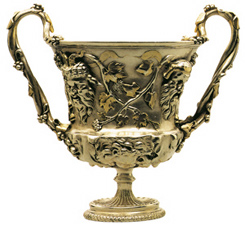Roman Wine: Windows on a Lifestyle
“There, when the wine is set, you will tell me many a tale—how your ship was all but engulfed in the midst of the waters; and how, while hastening home to me, you feared neither hours of unfriendly night nor headlong winds of the south.” (Ovid, The Amores II.ix)

For the Romans, wine was a part of almost every aspect of their daily life. Wine made herbal medicines palatable and wound-poultices effective; it gave special meaning to many a religious ritual; and gave warmth to fondly-shared love and brought laughter to the dinner table. Among the poverty-stricken, it made life simply more bearable.
Predictably, Roman literature is filled with the familiar rival views about wine’s merits. Many claimed it was a social evil, the root cause for idleness and debauchery; others saw it as a gift from the gods, a catalyst for friendship, and a means to well-being. The alcoholic and the pious and agreed, however, that wine was always better for you than drinking from a disease-ridden public water supply. Such disease kept life expectancy short, so the Romans demanded much of life. Perhaps one particular epitaph found in Rome captures their emotions most clearly:
“Baths, wine, and sex ruins our bodies. But what makes life worthwhile except baths, wine and sex?” (Corpus of Latin Inscriptions VI.15258)
